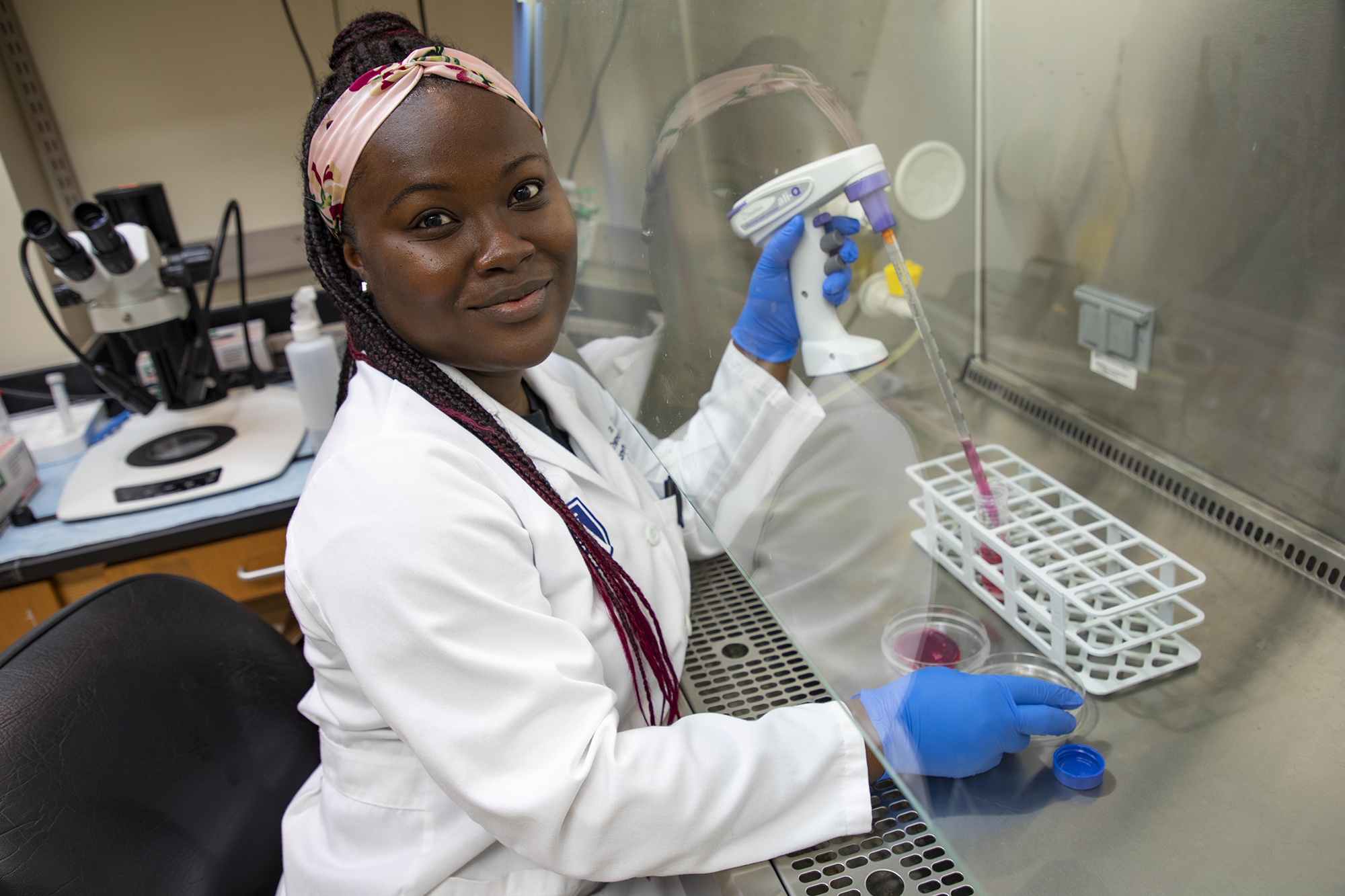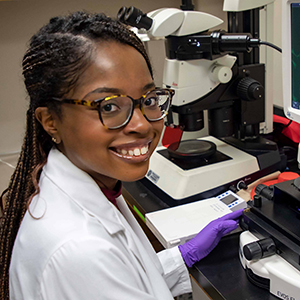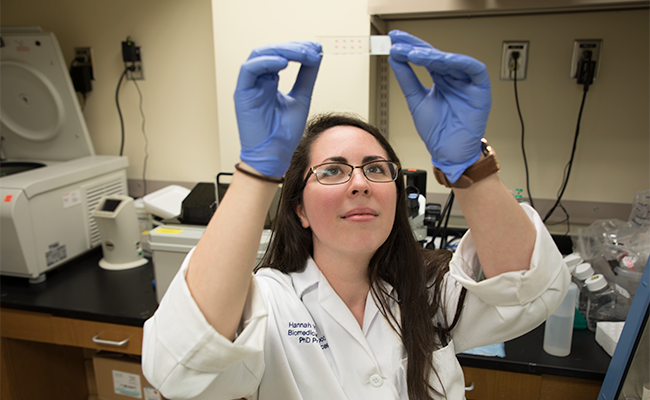


"One of the main things that attracted me to the Biomedical Sciences Program at Augusta University was its collaborative atmosphere. Different departments and labs are willing to interact, share resources, and teach techniques to students from other labs. You don't find that level of collegiality just anywhere. The program also seemed very student-centric. And because I was interested in studying glaucoma, the stellar vision research being conducted at the school was a major draw." Hannah Youngblood >>